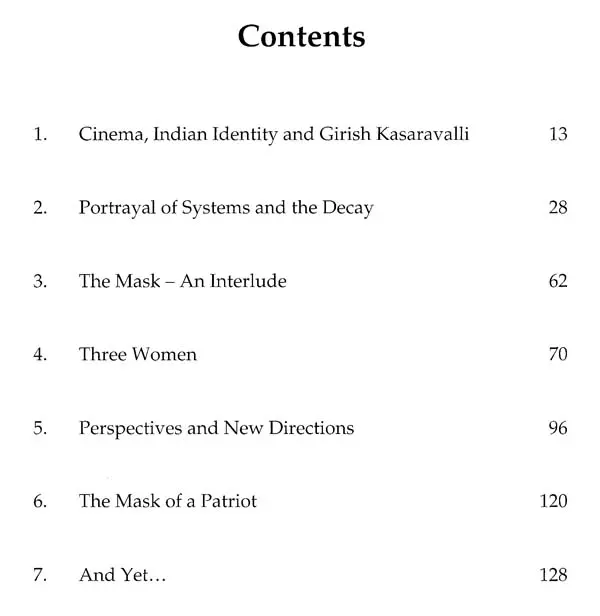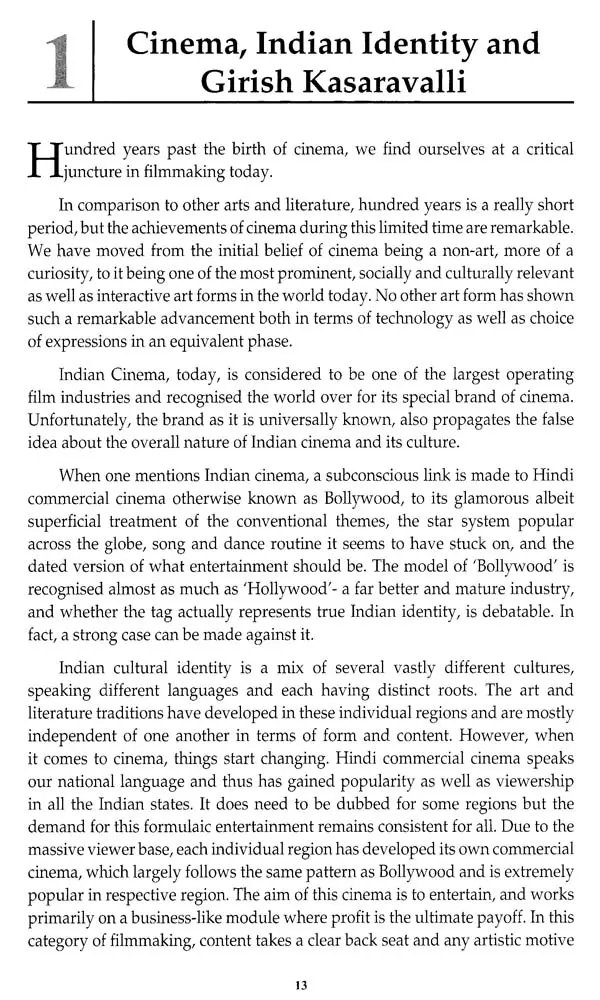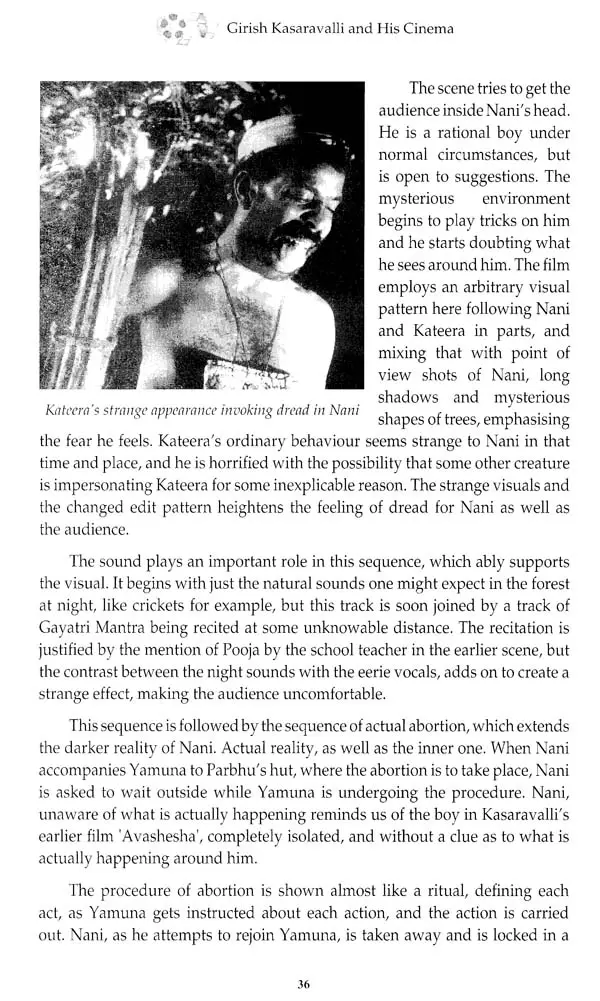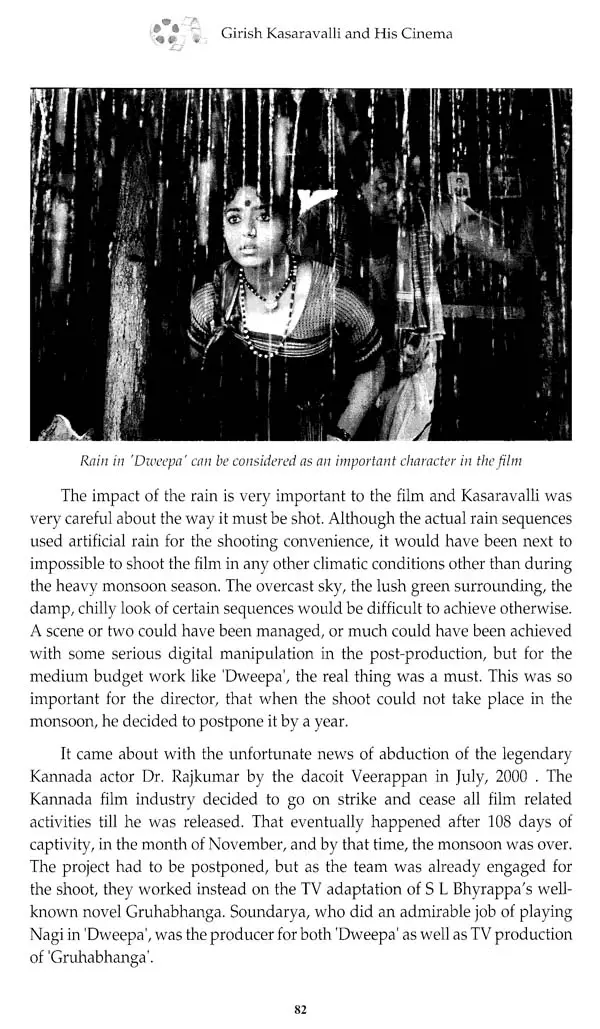
Seer of Contemporary History- Girish Kasaravalli and His Cinema
Book Specification
| Item Code: | UAJ504 |
| Author: | Ganesh Matkari |
| Publisher: | Publications Division of Ministry of Information and Broadcasting |
| Language: | English |
| Edition: | 2021 |
| ISBN: | 9789354093067 |
| Pages: | 136 (Throughout B/W Illustration) |
| Cover: | PAPERBACK |
| Other Details | 9.50 X 6.00 inch |
| Weight | 340 gm |
Book Description
Girish Kasaravalli is one of the pioneers of the new Kannada cinema, with multiple national award winning films under his belt. His filmmaking style is renowned for deftly illustrating individual dilemmas in the backdrop of socio-political environment. His cinema has largely been influenced by realism, and his films have been consistently ahead of their time. In this book, the author, Ganesh Matkari provides a glimpse into the purpose, the process and the principles of filmmaking, which Girish Kasaravalli has adopted to bring his visions to the screen.
Girish Kasaravalli is one of the most distinguished filmmakers in India. Over the years, Kasaravalli has consistently made films, both feature and non-feature, that have enriched the art of story telling in a unique way. His humane work has found admirers across the world and been critically acclaimed in many prestigious film festivals.
Kasaravalli has used the folklores of Karnataka innovatively and skillfully adapted stories and novels for the screen. While tackling various sensitive issues in his films, Kasaravalli has perfected the art of saying more with less, offering multiple layers of meanings. His films have a curious mix of subtlety and attention to finer details. The experience for viewers, in turn, is captivating.
Ganesh Matkari, a writer and film critic, has explored all these aspects and much more in this monograph. Despite being such an important filmmaker, not much of critical writing is available on the seminal work of Kasaravalli. I hope this monograph fills the gap and creates further interest in his films.
I am also delighted because NFAI is coming out with a publication, as part of NFAI's Research Programme, after many years. I am sure film enthusiasts would welcome this book, a fitting tribute to Girish Kasaravalli and his body of work.
**Contents and Sample Pages**










